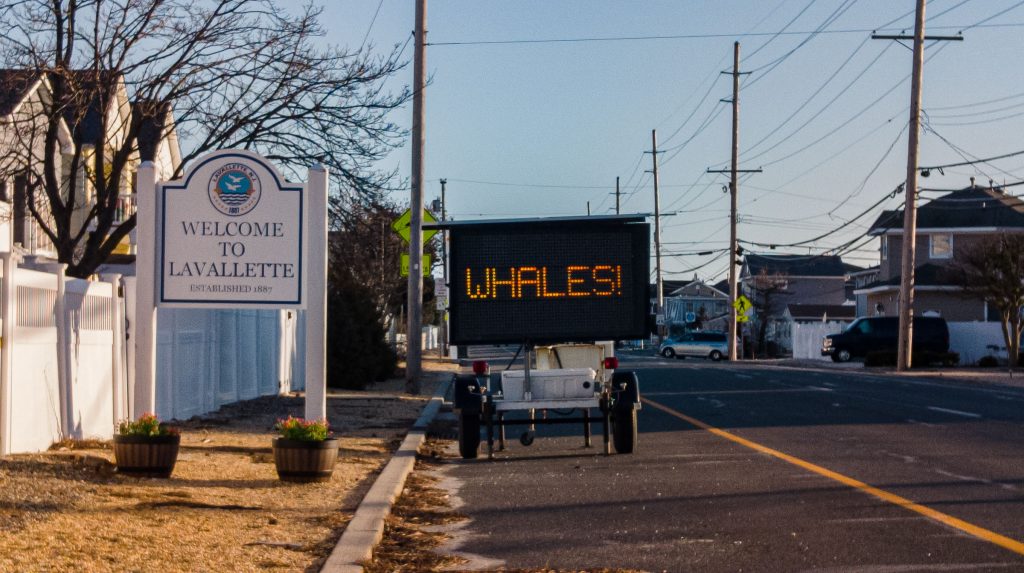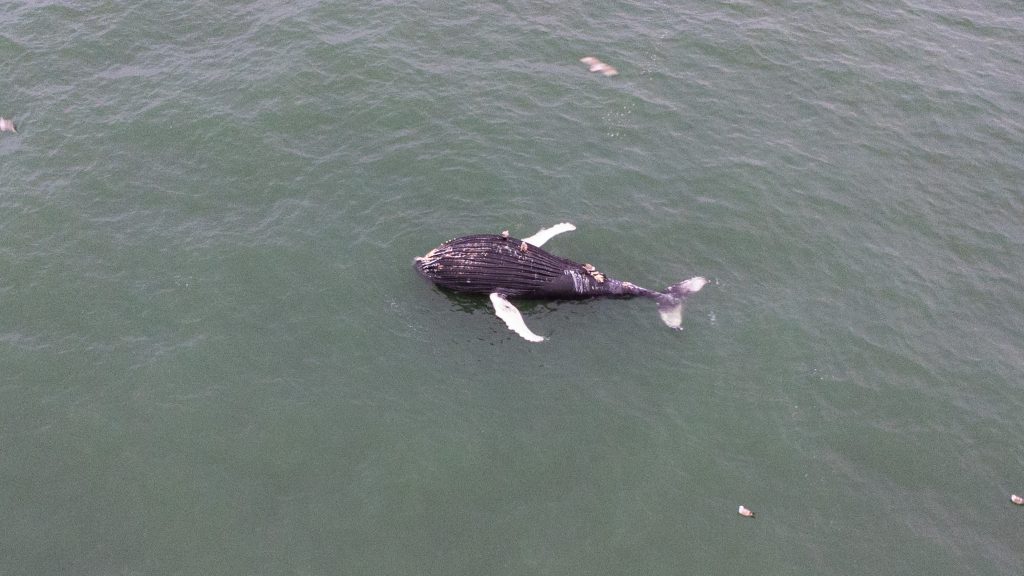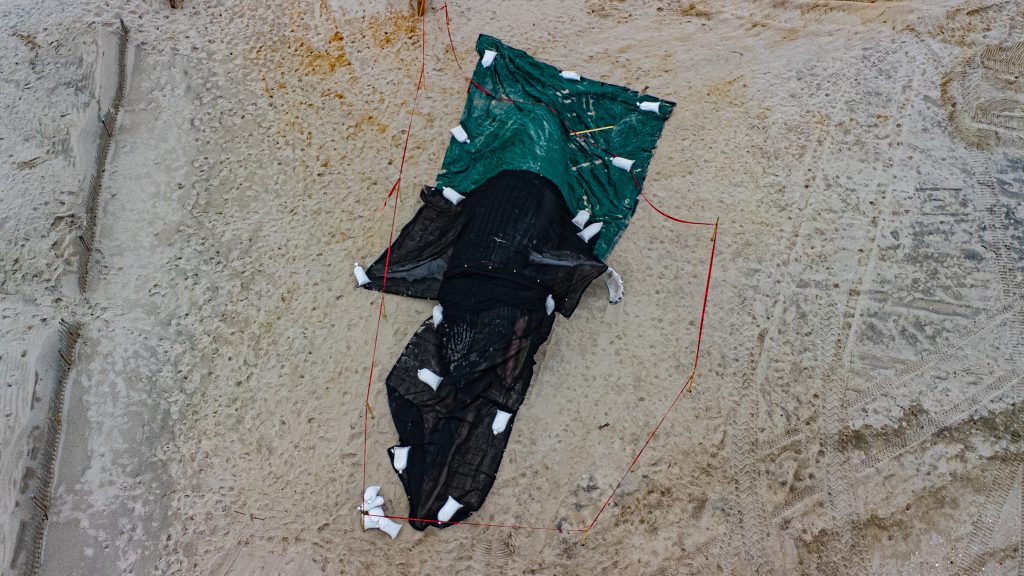A Jersey Shore town has made no bones about its position on calls to place a moratorium on offshore wind development research until experts can determine whether the offshore soundings have interrupted whale communication patterns.
Officials have said a rash of nearly 20 marine mammals, mostly humpback whales, have been discovered deceased, washed up on beaches or floating offshore. Necropsies have found evidence of boat propeller strikes on some of the animals, but experts say further testing is necessary to determine whether those strikes were received pre- or post-mortem.
This week, Lavallette officials changed the town’s digital messaging signs at both the northern and southern entrances to a flashing message reading, “Save the Whales.”
“The people were so excited to see that Lavallette put up a sign saying ‘Save the Whales,'” said Councilwoman Joanne Filippone, echoing comments from other elected officials from that town earlier this week.
“The county mayors’ association approved a resolution at its last meeting calling for an immediate cessation” of offshore wind research soundings, said Mayor Walter LaCicero.
The Ocean County Commissioners have also passed a resolution calling for a moratorium on the research, as well as several other local communities. Seaside Park, by way of Mayor John Peterson, was one of the first to pass such a resolution, which also gained unanimous support from the Toms River Township mayor and council at a meeting Tuesday night.

An electronic message board in Lavallette displays ‘Save The Whales’ along Route 35 South. (Photo: Daniel Nee)
The calls for a moratorium center on research mapping taking place offshore prior to wind turbine construction. As it currently stands, no turbines have been built off the New Jersey coast, nor are any under construction. Crews, however, are performing geological seafloor mapping and surveying using acoustic equipment that some have argued could send marine mammals off their migration tracks or disable them in the wild.
The federal government has defended the offshore wind turbine research, and the debate has pitted some environmental groups against each other. Clean Ocean Action and Save Barnegat Bay, two of the most prominent advocacy groups in New Jersey, have raised concerns over the whale deaths, while the Sierra Club has dismissed those concerns, arguing that climate change is a larger threat.
“Blaming offshore wind projects on whale mortality without evidence is not only irresponsible, but overshadows the very real threats of climate change, plastic pollution, and unsustainable fishery management practices to these animals,” said Anjuli Ramos-Busot, director of the New Jersey chapter of the Sierra Club, said on Jan. 13.
Representatives with the National Oceanic and Atmospheric Administration, or NOAA, previously said the wavelength and radiofrequency spectrum associated with the research is unlikely physically reach whales and other mammals. The same agency, however, granted permission to wind developers to take (kill) or otherwise harass thousands of animals during the deployment of offshore wind turbines, including various species of whales, dolphins and seals.
A petition calling for a moratorium has garnered more than 300,000 signatures.
“These are not fish, these are air-breathing mammals that communicate with sound,” said Toms River Mayor Maurice “Mo” Hill, at a council meeting Tuesday night. “Something is going on with the seismic testing going on with these wind farms, and I fully support Mayor Peterson’s call to put a stop to this until we find out what’s going on. I don’t buy that it’s all commercial fishing boats that are killing these whales.”
Federal action may be forthcoming; U.S. Rep. Jeff Van Drew (R-2) has scheduled a local hearing to be held March 16 at the Wildwood Convention Center. There are rumbles indicating that more formal hearings could be held by members of congress in Washington, though any action to delay the offshore wind development would likely elicit significant pushback from Democrats and the Biden administration, both strong proponents of rapidly deploying renewable energy infrastructure.
Van Drew, and many of the groups calling for a moratorium, have not outright opposed offshore wind but have called for additional research into how the soundings and construction could affect marine species as well as fishing grounds.
“Hearings are critical,” Van Drew said in a statement. “If the federal government and these offshore wind companies have nothing to hide, then prove it. They must prove that the development of these projects will have no effect on the environment, which is hard to believe following the death of over a dozen whales in the Northeast region where surveying is currently taking place.”


Police, Fire & Courts
Toms River Man Sentenced to Prison for Assault, Eluding, Robbery, Threats









